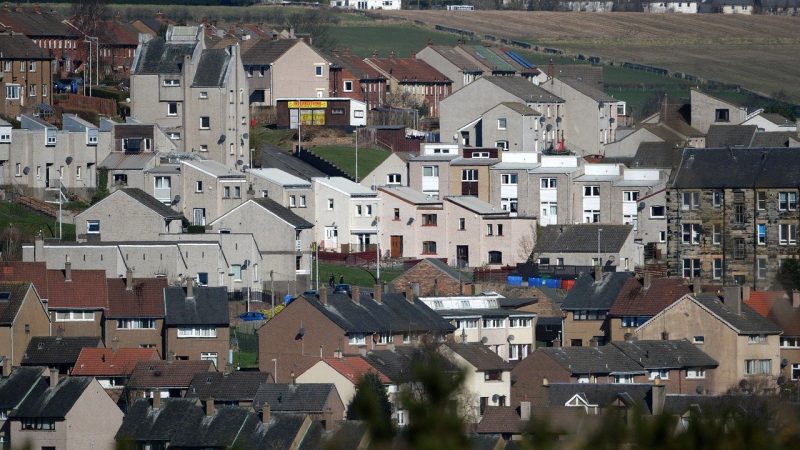The Scottish National Party has come under fire over its handling of homeless families.

New analysis on homelessness statistics in Scotland for 2020-21 shows that families without a home are living in limbo in temporary accommodation for increasingly longer periods.
The average stay in supposedly short-term accommodation for homeless families with children currently stands at almost 12 months. The duration spent in provisional housing has been increasing year-on-year since 2017, the research shows.
341 days is the average amount of time families with children now stay in interim housing in Scotland. This compares to homeless people without children, who spent an average five months less waiting for a home. Single parents are being forced to wait an extra 53 days before being found a permanent home compared to those being housed without children.
Since 2018 -19, the average stay in transitory housing for single parents has jumped up 12% by 25 days.
A ‘scandal’
Scottish Labour described the situation as a “scandal.
“Any civilised society should be getting children into proper homes as a matter of urgency – but we are falling woefully short,” said Mark Griffin, housing spokesman for Scottish Labour.
“It is shameful that some children will go through the best part of an entire school year stuck in limbo.
“We need a real strategy for tackling homelessness that doesn’t rely on endless stays in temporary accommodation,” Griffin added.
A spokesperson for the Scottish government attempted to defend the current situation, stating: “Temporary accommodation can offer an important emergency safety net for anyone who finds themselves homeless, but we recognise that it should be a purely temporary measure, particularly for families with children.
“Local authorities share our ambition to ensure stays in temporary accommodation are short-term, and we will be working with them to achieve this.”
‘People just need a home’
LFF spoke to Gordon MacRae, assistant director at Shelter Scotland, who said that whilst temporary accommodation is an important part of the system, families are staying longer and longer in such housing because of supply issues.
“Evidence shows that temporary accommodation has a massive impact on life opportunities. We need to approach the issues with the same gusto the Scottish government has tackled rough sleeping.
“People just need a home,” MacRae told LFF.
Shelter Scotland is calling on the Scottish government to build new social homes, saying that the construction of quality social homes in the right places will help reduce child poverty, and inequality and tackle the root cause of homelessness.
“We can only end Scotland’s housing emergency by increasing the supply of secure and affordable homes,” said Alison Watson, director at Shelter Scotland.
A ‘bleak situation’ ahead
Concerns about homeless families in Scotland being left in temporary accommodation for longer come amid warnings that foodbanks and homeless shelters are preparing for a “bleak situation” this winter.
Chris Birt, association director for Scotland of the Joseph Rowntree Foundations, warned that government action over the poverty crisis was “just tinkering around the edges.”
“There will be foodbanks preparing for extra people coming through their doors, there will be homeless services and councils, getting prepared to be busier over the winter.”
As a means of tackling poverty, Birt said the Scottish government could look at increasing bridging payments further for those in receipt of the Scottish Child Payment or increasing the winter housing allowance.
Though the charity leader warned that more deep-rooted measures need to be implemented to help eliminate poverty, such as creating a minimum universal income.
“The Scottish government are certainly doing more than the UK government, but they’re kind of tinkering around the edges of what is a more substantial economic, deep-rooted problem,” said Birt.
UK government must look beyond emergency measures
In England, where around 1 in 100 households suffer a form of homelessness, calls are being made for the government to use the forthcoming Spending Review to look beyond emergency measures to reduce rough sleeping. Charities are urging that homelessness and the incredible work of the sector during the pandemic is not forgotten in the chancellor’s 2021 Comprehensive Spending Review which will conclude alongside the Autumn Budget on October 27.
Success of Housing First
Rick Henderson, chief executive at Homeless Link, points to the Housing First initiative as a success story for eliminating homelessness. Housing First is an assistance approach that prioritises providing permanent housing to people experiencing homelessness. However, Henderson says the funding needs to be there to successfully introduce and maintain such long-term solutions.
“That’s why through the coming Spending Review, the government should match the enhanced investment in rough sleeping services during the pandemic with a £132.5m annual boost to the Rough Sleeping Initiative through to 2024/25. Delivering this through a simplified and long-term guaranteed grant programme to local authorities will remove the need for organisations to be endlessly bidding for short-term funds,” Henderson writes.
Gabrielle Pickard-Whitehead is a freelance journalist and contributing editor to Left Foot Forward.
Left Foot Forward doesn't have the backing of big business or billionaires. We rely on the kind and generous support of ordinary people like you.
You can support hard-hitting journalism that holds the right to account, provides a forum for debate among progressives, and covers the stories the rest of the media ignore. Donate today.



